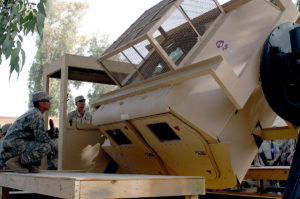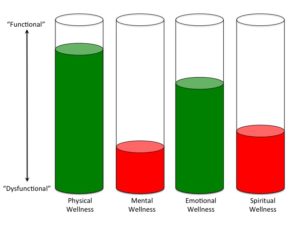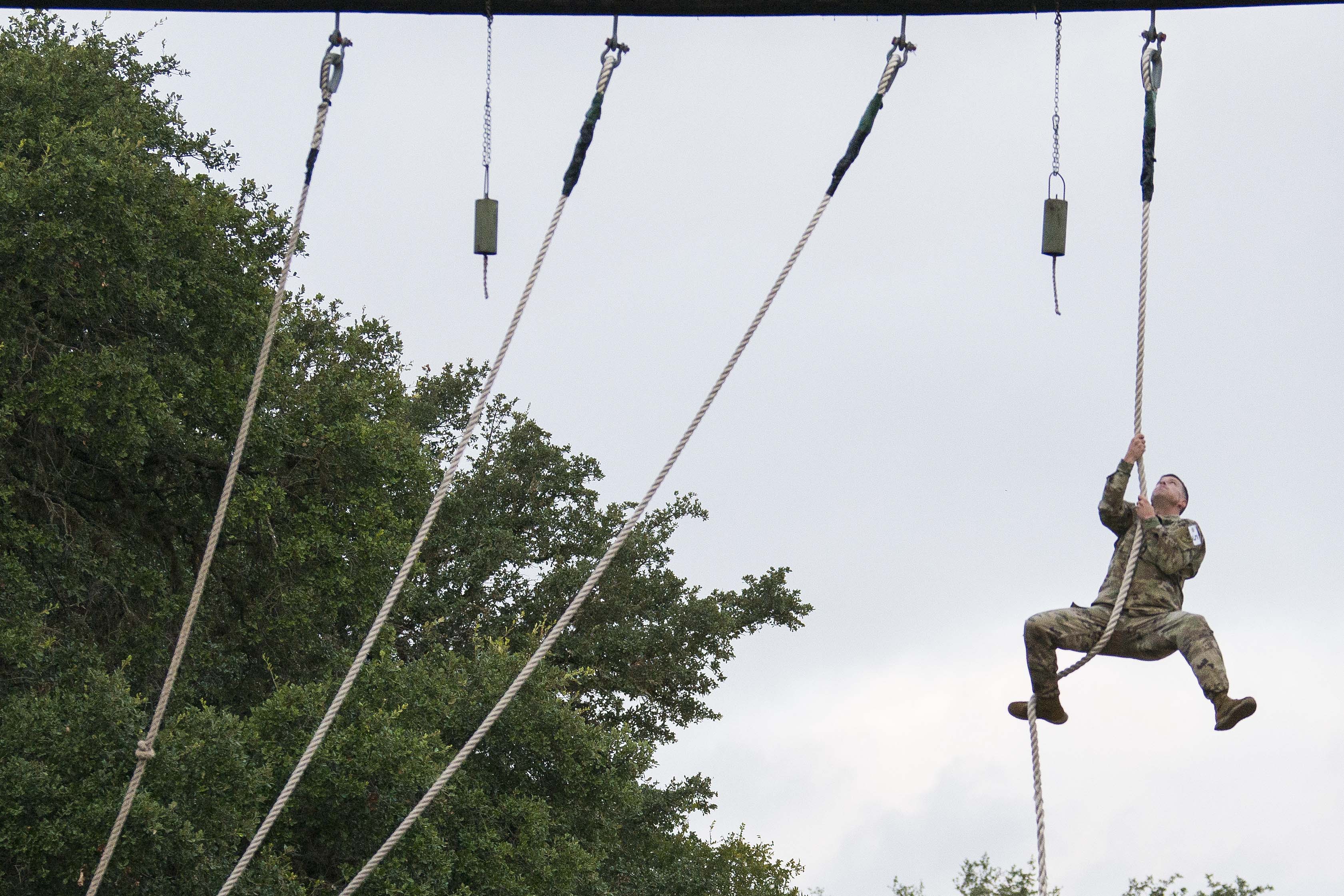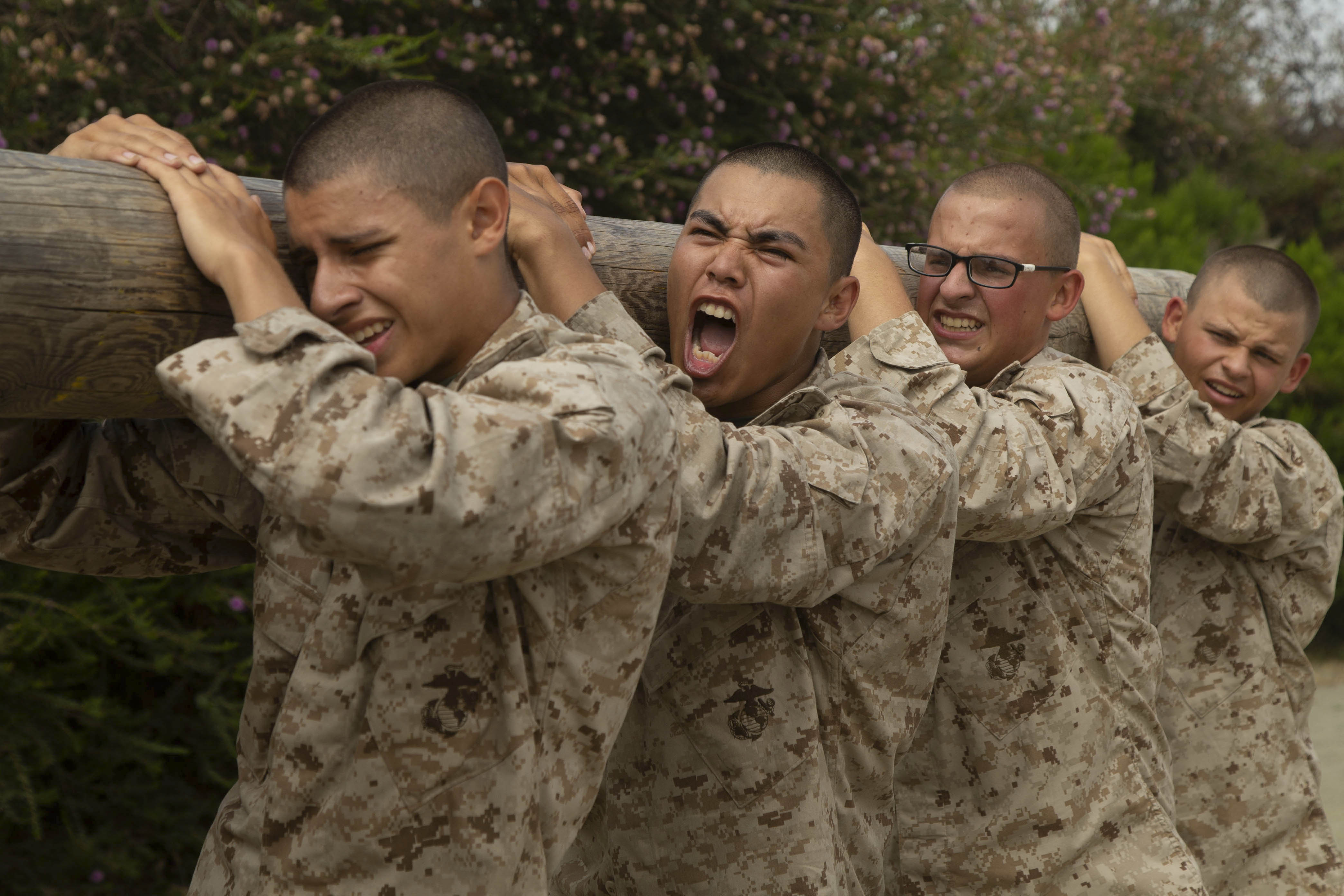
Have you ever been through rollover training while you were in the military, or worse, actually experienced a rollover? A total loss of control, the vehicle that you’re in reaches a tipping point and over it goes. That can happen in life, too, especially when we’re navigating the treacherous and unfamiliar road of transition. Finding balance in our lives after leaving the service is one of the most important things we can do to ensure our future success. There are many things we need to balance…work and play, family and career, what we want to do and what we need to do. Before we can create equilibrium in those things however, it would be best if we could find balance within ourselves.
In a previous post about posttraumatic growth, I talked about the continuum between functional and dysfunctional. I deliberately chose to refrain from focusing on wellness vs. illness, out of a desire not to pathologize our experiences in the military. However, wellness is certainly a goal to be aspired to, for us to be as well as we could possibly be. The balance I am talking about here is the balance that leads to wellness.
In order to succeed in our transition out of the service, or out of combat, we must strive to maintain wellness in four different areas of our life: physical, mental, emotional, and spiritual.
If any one of these four areas is deficient, then we are not operating at our full potential. We are not as well, or as balanced, as we could be, and this could lead to more difficulties down the road.

Regarding physical wellness, this is something that many veterans do well…but how often do we maintain those habits after we leave the service? Outside of that, how many times did we ignore problems while were in the service, that came back to haunt us later? Veterans are often required to push themselves to their physical limits and beyond, and proudly do so. Do we sometimes do that to our detriment? Did jumping out of airplanes thirty-five too many times do as much harm as it did good? I wouldn’t change any of them, of course, and if I could go back in time, I would probably increase the amount of jumps rather than decrease, but they certainly took a toll on my physical wellness. How about habits after we get out? Drinking too much, eating too much, exercising too little? Physical wellness is certainly something to pay attention to.
Often, when I talk to veterans about Mental and Emotional wellness, there is a misconception that I’m talking about the same thing. They are certainly intertwined, but they are separate and distinct. When I talk about mental wellness, I’m talking about your thoughts, your internal point of view, whether you see things positively or negatively. How you explain the world around you has a huge impact on how you get things done. I’m not talking about some Pollyana, pie-in-the-sky blind optimism, because let’s be real, we always focused on the most likely course of action and the most dangerous course of action when planning something. Whether it was a range or a patrol, we always considered what could go catastrophically wrong, and implemented risk mitigation techniques to keep that from happening. Planning for the worst case scenario is ingrained in the military mindset…it’s why we always had three AT4s, a few Claymores, and a bunch of Frag grenades with us when we went out. Do we always need to be locked into that mindset, however? Constantly considering the worst case scenario keeps us trapped in a catastrophic mindset. I hear you saying to yourself, “that’s great, but thinking positively about the future don’t put food on the table.” Absolutely. It’s not always easy, and it’s not always fun. You know what else wasn’t always easy or fun? Basic training. You made it through that, didn’t you?
As I mentioned, Emotional Wellness is closely tied to Mental Wellness, so much so that the two can impact each other like one wave impacts another. How many times in your service did you have a leader who was tactically sharp as a tack, who could slice through a problem like a knife through butter…but would fly off the handle at the seemingly smallest detail? We referred to those leaders as “bi-polar” or “schizo” (and we can have an entirely different discussion about using serious mental conditions in such an off-hand way, but the reality is what it is. Doesn’t make it right.) You may be on the right track professionally, doing all of the right things, connecting with all of the right people, but if you are overwhelmed emotionally, then you simply will not be as effective as you could possibly be. Your thinking may be on the right track, but if stress causes you to explode into anger or spiral into depression, then transition will be challenging. Alternatively, if you have too LITTLE emotion, then that can throw you off balance as well…distancing yourself emotionally from those around you, and from society, can bring it’s own challenges.
Spiritual Wellness is something that is critical as well. I am not specifically talking about a particular religion, although that can certainly be a part of it. Being connected to something “other”, feeling part of something larger and more important than yourself, can give you both meaning and purpose in your life. For me, personally, I don’t believe that I would be able to help veterans in the way that I do if it were not for my faith in God and His Son. I find strength in my faith, in my spirituality, when I often do not have strength physically, mentally, or emotionally. Spiritual wellness also speaks to finding meaning and purpose in your life; many veterans struggle with a loss of a sense of meaning and purpose after they leave the service. Those that we interact with don’t seem to understand what we went through, and worse, don’t seem to want to understand. The need to find purpose and meaning in our lives is so significant that I will be devoting future posts to this point. I have talked to many veterans who have found their balance physically, become more aware of their thoughts and in control of their emotions, but still felt “empty inside” and unable to find any meaning in their lives or what they are doing.
So there you have it: balancing physical, mental, emotional, and spiritual wellness can keep you from being injured in a catastrophic life rollover. If you are struggling in any of these areas, find someone to help. Reach out to a buddy, a counselor, a mentor, an advisor. You don’t have to go through this transition alone, and no one…least of all me…wants to see another veteran succumb to a catastrophic life event.




1 Comment
HST040: Spirituality, Women Veterans, and Transition with Dannette Patterson — Head Space and Timing · January 16, 2018 at 3:31 am
[…] Four Areas in a Veteran’s Life that Require Balance, and How To Achieve It […]
Comments are closed.